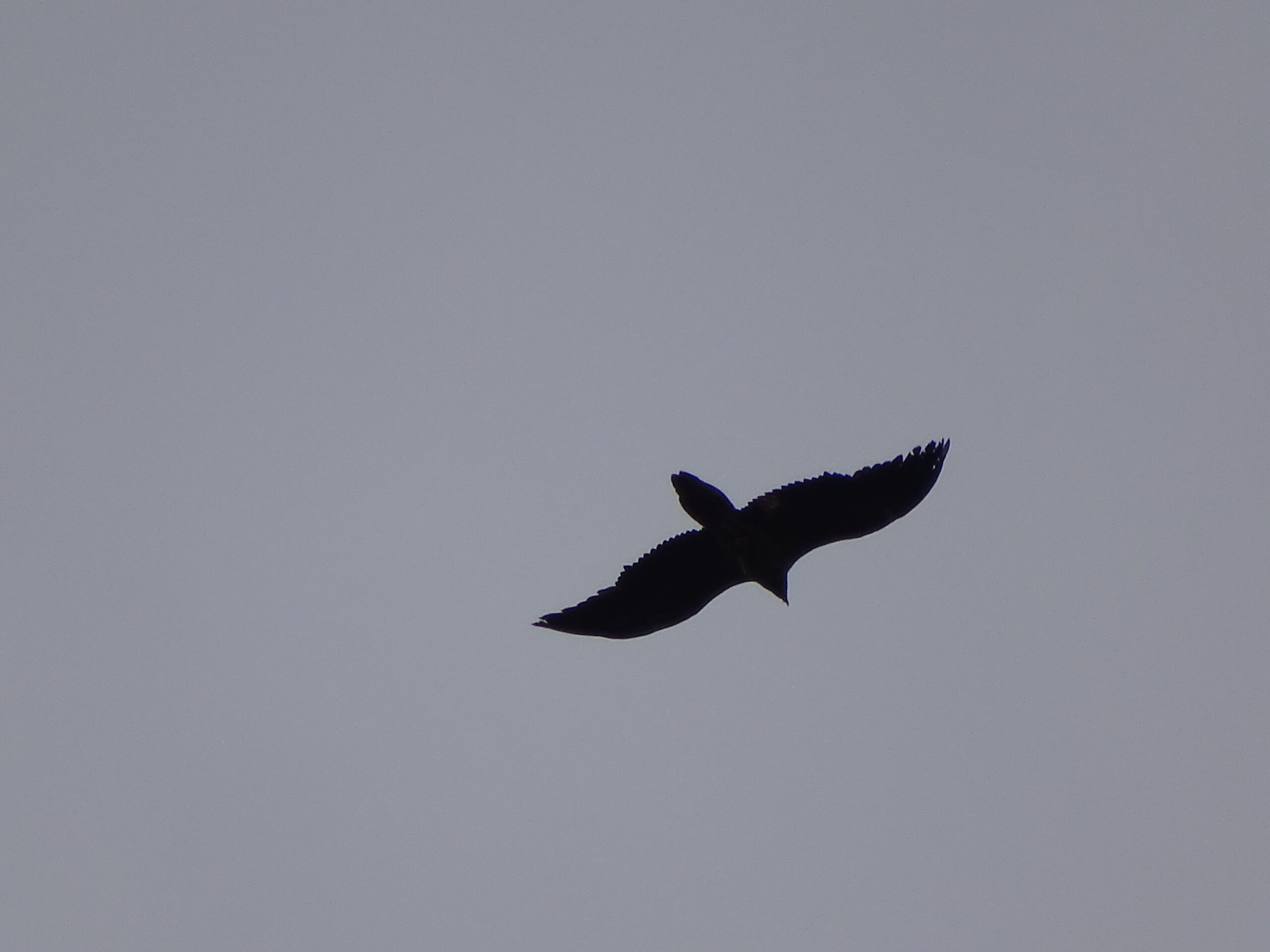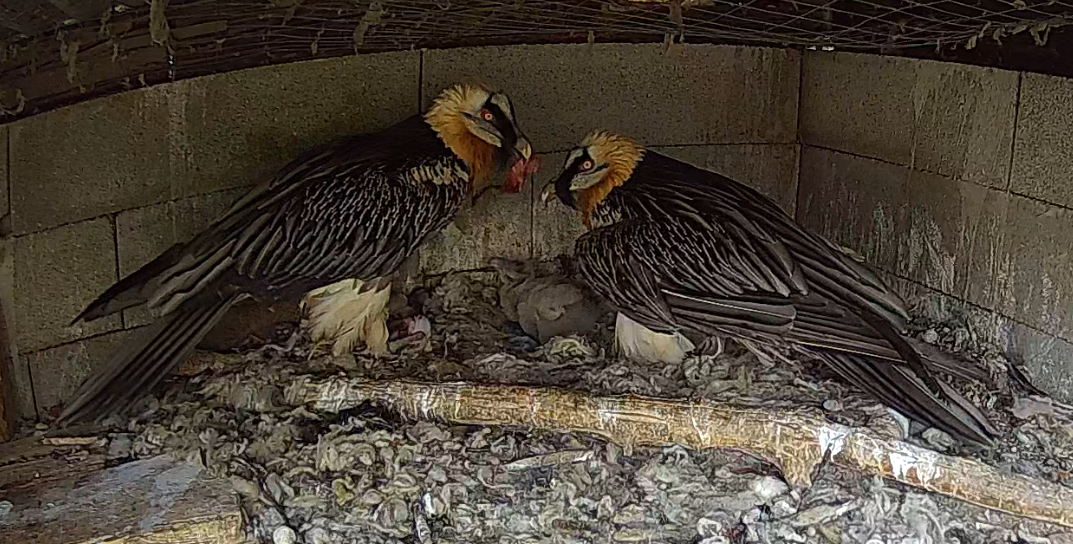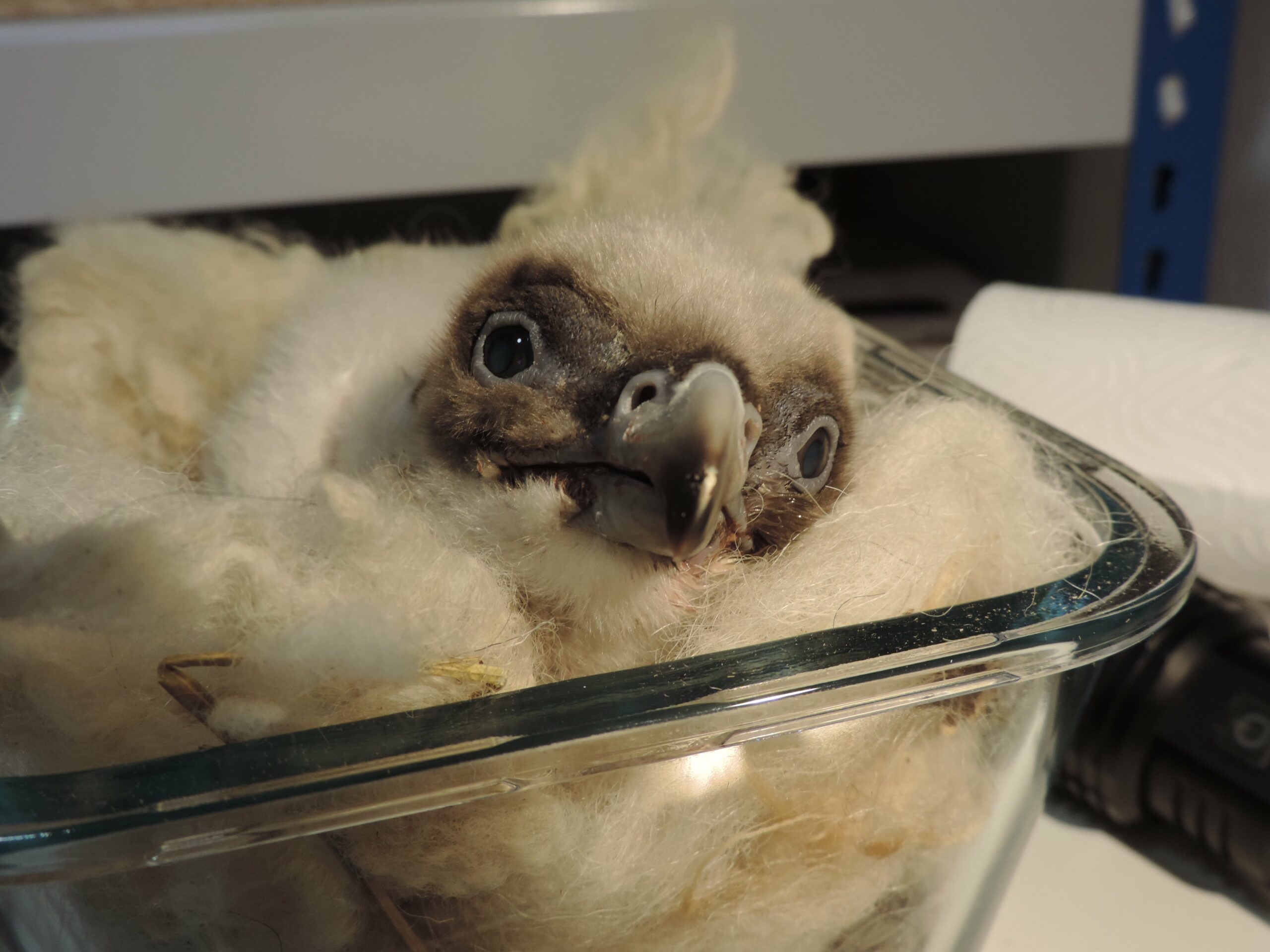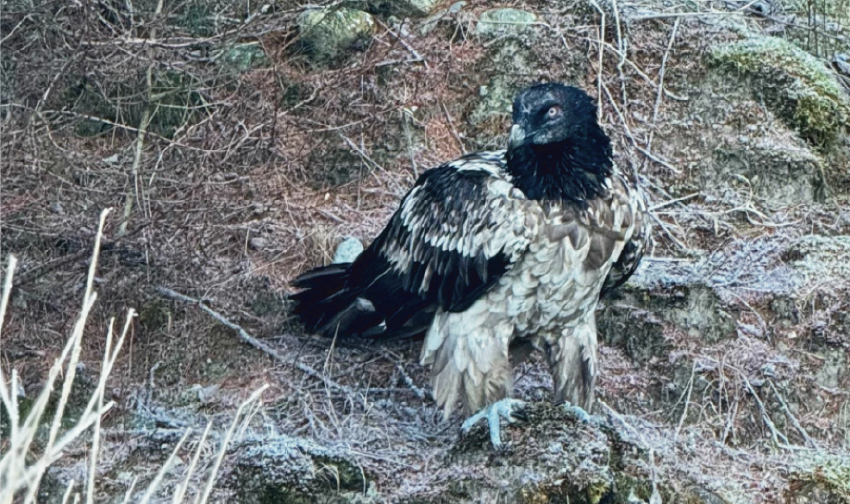
Over the last two months we have been closely following the movements of the Bearded Vulture that arrived in the UK in June, and has now spent several weeks in the Peak District National Park. It has generated a huge amount of interest, attention and excitement among the birding and wildlife watching community in the UK, as well as many other visitors to the area and on social media. It is fantastic to see how a single Bearded Vulture can generate so much positive interest in the species and its conservation.
We have been in constant communication with several local and national organizations in an advisory capacity, as there is some concern that the vulture, which is far away from its usual range in the Alps or Pyrenees, might not be able to find food, or could be at risk from different threats in the wider landscape. We observed the vulture in the field in mid-July, and have been following the movements and behaviour of the bird since then via online reports as well as from local organizations that are monitoring the bird. In our view, the bird is behaving normally and has so far managed to find sufficient food to meet its energy requirements. Threats do exist in the wider landscape in the UK and so its safety cannot be guaranteed. However, this is also true in many parts of their normal range in Europe, although a huge amount of progress has been made to reduce the risk of collisions with overhead cables, as well as reducing the incidence of illegal poisoning, and other threats.
Over the weekend a statement from the Peak District National Park has caused some confusion about whether there are plans to intervene by catching the bird and transporting it back to the Alps or Pyrenees:
“Although any intervention remains a last resort, conservation experts both locally and from the continent are already exploring how the bird may be returned safely to its home reintroduction area, as all individual bearded vultures remain vital to the scheme.”
We at VCF would like to clarify this statement, from our perspective. At this stage there is no need to intervene unless the bird becomes grounded (unable to fly) due to weakness, injury or other cause and is in need of treatment. If that is the case, the bird will be captured and transported to a suitable facility for treatment and rehabilitation, which would be the main priority. Following that, if the bird is eventually determined to be releasable by qualified veterinarians, a strategy for re-release will be formulated in cooperation with all relevant stakeholders and organizations. The strategy will be informed by scientific evidence, such as results of genetic analysis to determine the origin of the bird, as well as logistical and other issues. This is the standard procedure for all similar cases, with the main difference being that the bird has crossed the sea to the UK, which is only the second time the species has been recorded in the country. However, it is not unusual for young Bearded Vultures to travel to northern Europe, and many of those birds return to their normal range unaided, or occasionally require rescue, rehabilitation and re-release in a suitable location. Ideally the bird will eventually travel south and cross the sea successfully to return to mountains where there are other Bearded Vultures, giving it a chance to be recruited into the breeding population.
If intervention is required, based upon the criteria above, then we at VCF have already started to put a plan into place in cooperation with local and national organizations to ensure the welfare of the bird.
To be clear, from VCF’s perspective, at this stage intervention will only be required if the bird is grounded (unable to fly) due to weakness, injury, or other cause and requires rescue, treatment and rehabilitation for eventual re-release in a suitable location.
Thank you again to everyone for the huge amount of interest in the Bearded Vulture in the UK, it is encouraging to see that so many people are keen to ensure it remains safe while in the country.
You an stay tuned with Europe’s vultures by signing up to the VCF’s monthly newsletter.




